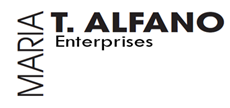According to a research done by a researcher and the Fraser Institute, an independent non-partisan research and educational organization based in Canada, comparing the Canada Pension Plan (CPP) to other private and public pension plans sectors is like comparing apples to oranges. The statement was released after the comparison had been taken out when the federal and provincial governments decided to expand CPP coverage and increase the pension of their premiums.
Moin Yahya, a Senior Fellow of Fraser Institute, said that their study found out that the private pension plans have a different regulatory and legal burden that doesn’t apply fo the CPP.
“You should be aware of this is why your plan might be a little costlier than the CPP, but it’s because you’re getting a better product or maybe a more diverse product or a more… nuanced product than just the plain vanilla CP.”
“If you still wanted to have CPP expand, then at least you’ve done so with full disclosure, but you should be aware of what the trade-offs are. This is going to affect the quality and quantity of offerings that their own pension plans will be able to deliver,” Yahya said.
In a 2016 survey, two out of three Canadians are not confident that the Canada Pension Plan (CPP) will still give them the benefits when they retire. Currently, the CPP gives a maximum of $13,000 in a year.
CPP is a mandatory savings program. All the employed individuals and their employers get to give a portion of their salaries the CPP. Freelancers, on the other hand, are in need to pay the full applicable contribution amount for CPP on top of their taxes. At the age of retirement– normally, for now, at the age of 65– the CPP will give your monthly pension depending on the percentage of your previous contributions. These pension plans are indexed to inflation. This system is applicable for the Canadians, except for Quebec since they have the Quebec Pension Plan which also has its own system.
CPP is one of the three main government pension plans. Others are the Old Age Security (OAS) and the Guaranteed Income Supplement (GIS).

Let us know what you think